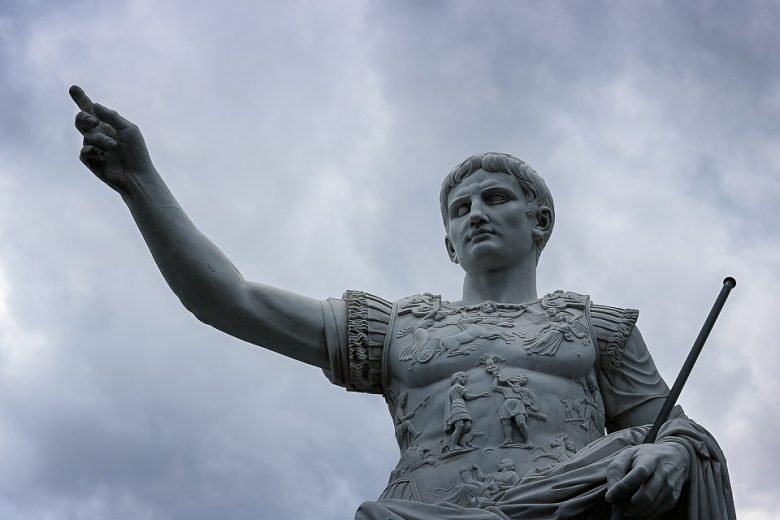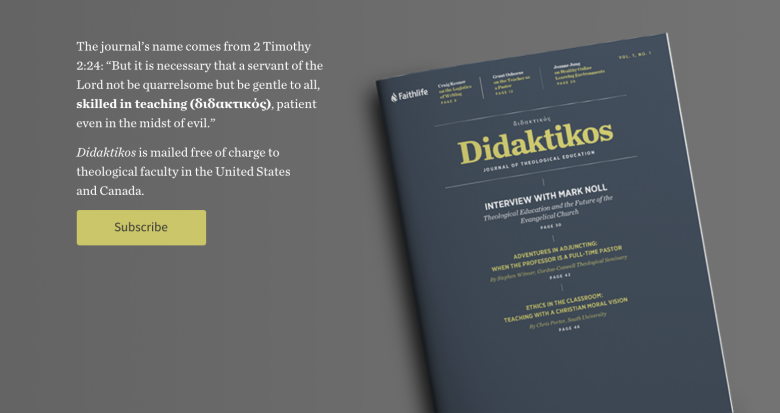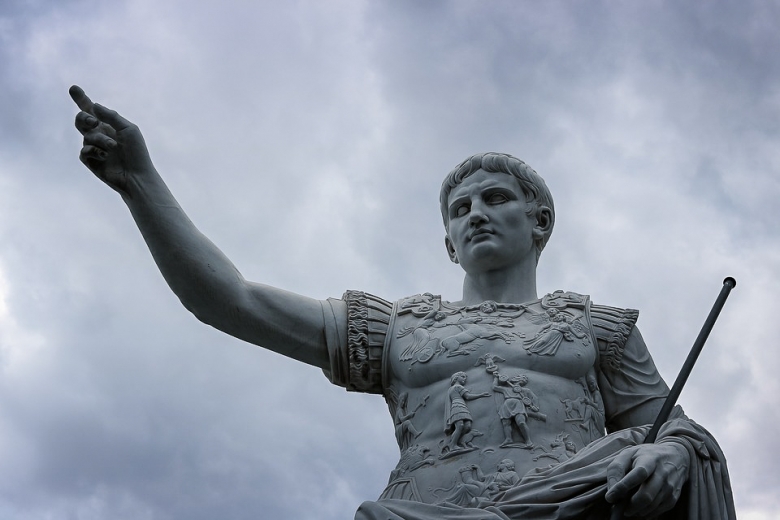
by Adam Winn | University of Mary Hardin-Baylor
Rome and Rome’s empire have always been recognized as significant pieces of the New Testament’s background. It was a Roman governor who sentenced Jesus to die on a Roman cross. It was a Roman centurion who was the first Gentile convert in Acts. It was on Roman roads that Paul traveled to bring the gospel of a crucified Messiah to the Gentile world. And it was to the Roman government that Paul and Peter demanded Christians give obedience and proper respect.
But in the past three decades of New Testament scholarship, there has been a growing movement within the guild that has argued it is not enough to recognize the Roman Empire as an important piece of the New Testament’s background; instead this empire needs to be recognized as a crucial foreground for reading much of the New Testament. It is this conviction that birthed empire criticism in the guild of New Testament studies, and it is with this basic conviction that this new criticism pushes forward and grows.1
[callout img=”https://files.logoscdn.com/v1/files/18877357/content.jpg?signature=vCGC52_fHiPaYCxNEEp6euVkehQ” text=”Was Mark written in response to Roman imperial propaganda? See Adam Winn’s” link_url=”https://www.logos.com/product/168973/reading-marks-christology-under-caesar-jesus-the-messiah-and-roman-imperial-ideology?utm_source=academic.logos.com&utm_medium=blog&utm_content=2019-04-03-winn-empire-new-testament&utm_campaign=promo-logospro2019″ link_text=”Reading Mark’s Christology Under Caesar”]
Two significant factors led to the birth and emergence of empire criticism. First, postcolonial criticism led to new strategies for detecting and assessing the ways in which colonized peoples respond to colonizers.2 These strategies gave New Testament scholars new avenues for assessing how those living under Roman rule might be responding to imperial power. Second, developments in classical studies demonstrated that the Roman Empire was a far more ubiquitous entity than had long been assumed. Classical scholars demonstrated that the tentacles of imperial Rome reached far past the realm of Roman political figures, laws, and military forces.3 They in fact reached into areas such as religious institutions, economic systems, social organization/institutions, architecture, and literature. Where the guild of New Testament studies long understood Rome’s empire (and its role as a background to the New Testament) primarily in political terms, empire criticism opened new avenues for exploring a text’s engagement with empire where such engagement was previously not perceptible.
If Rome’s empire pervaded virtually all aspects of ancient Mediterranean life, then first-century Christians, including the authors and audiences of the New Testament, would have engaged that empire on a daily basis. In light of this knowledge, scholars pursuing empire criticism search for ways in which such engagement manifests itself in the writings of the New Testament. While many are indeed looking for ways in which New Testament writings critique and challenge empire, most also recognize that responses to imperial power are often complex and hybrid in nature.4 Thus they include responses characterized by ambivalence and accommodation as well as resistance.
Empire criticism is not without its own critics, and it has not been uniformly accepted in the guild. I will note three significant criticisms here. First, empire critics are often accused of finding empire hiding under every stone in the New Testament. Such overreaching is not unexpected in a new area of study, but it does lead to a collective eye roll among many in the guild.5 Second, many claim that empire critics are too often missing the point, and that the books of the New Testament are really interested in making theological claims (e.g., the kingdom of God over the kingdom of Satan) rather than political ones.6 Third, it is claimed that empire critics are often imposing their own twenty-first-century political agenda on the New Testament.7
[callout img=”https://files.logoscdn.com/v1/files/7221830/content.jpg?signature=udnpHMhsU2Ha6lHQP_Wo0Mi0krg” text=”Elliott Neil offers insight from classical studies, rhetorical criticism, postcolonial criticism, and people’s history in” link_url=”https://www.logos.com/product/15504/the-arrogance-of-nations-reading-romans-in-the-shadow-of-empire?utm_source=academic.logos.com&utm_medium=blog&utm_content=2019-04-03-winn-empire-new-testament&utm_campaign=promo-logospro2019″ link_text=”The Arrogance of Nations: Reading Romans in the Shadow of Empire”]
To these three criticisms, I offer three brief replies. To the first criticism, that empire critics often overreach in their efforts, I would agree. With the zeal that often comes with a new avenue for exploring the New Testament, some empire critics have likely found empire in places where the case for its presence is relatively weak. Such overreaching can damage the perceived legitimacy of more plausible claims of imperial influence in the text. But this critique simply calls for caution and care in employing empire criticism; it does not undermine the enterprise itself. Indeed, such words of caution should be welcome.
To the second criticism, that empire critics are missing the point by emphasizing empire over theology, I would say such criticism has created a false dichotomy between religion and politics that would have been completely absent in the first-century
Mediterranean world. For Jews, Greeks, Romans, Egyptians, and other people groups living in the first-century Roman Empire, politics and religion (theology) were complexly intertwined. To say that the authors in the New Testament were interested in proclaiming the gospel rather than challenging the empire is to ignore two facts:
not only was the word “gospel” itself steeped in Roman imperial ideology, but the content of that gospel proclaimed a new kingdom and lord that inherently implied the demise of Rome! In the interpretation of first-century Christian documents, the divorce of theology/
religion from empire/politics seems an anachronistic imposition of a Western and modern worldview.
To the third criticism, namely that empire critics are often imposing their own twenty-first century political agendas on the text of the New Testament, I would acknowledge some truth in this critique. Late twentieth- and early twenty-first-century politics have been a catalyst for some empire critics to search for responses to empire in the New Testament. And certainly for some of these critics there is an interest in speaking to current political agendas. But it would be misguided to conclude that, because modern cultural realities and current events were a catalyst for a particular trend in scholarship, then the fruit of that scholarship is in some way invalid. Realities in the present often open the eyes of modern readers to realities that are indeed in the text and not simply the imposition of external realities onto the text.
[callout img=”https://files.logoscdn.com/v1/files/7159583/content.jpg?signature=HPdPiEcgf1BOtRJKT3kqDD7NoeQ” text=”The Apostle Paul has been frontlines for the recent explosion of postcolonial and empire-critical scholarship, with foremost voices in the debate contributing to” link_url=”https://www.logos.com/product/50306/the-colonized-apostle-paul-through-postcolonial-eyes?utm_source=academic.logos.com&utm_medium=blog&utm_content=2019-04-03-winn-empire-new-testament&utm_campaign=promo-logospro2019″ link_text=”The Colonized Apostle: Paul through Post-colonial Eyes”]
An excellent example of this is the Holocaust in Europe. That horrific and tragic event was a giant mirror in which biblical scholarship saw very clearly its own anti-Semitic biases. Gazing into that mirror led to significant changes in New Testament studies, particularly the renewed interest in the Jewish context for understanding Jesus and Paul. Scholars must always be careful to avoid anachronism, but the fact that their own cultural experiences allow them to see something in the biblical text does not mean they are imposing those experiences onto the text.
At the end of the day, one cannot deny that every page of the New Testament was written under the shadow and influence of Rome’s empire—and that empire no doubt influenced a great deal of what was written. Empire criticism largely seeks to identify and analyze that influence. This relatively new subfield of New Testament study is fertile ground for both research and teaching, and there are numerous resources for introducing this subfield to your students.8
1 For good introductions to empire criticism in New Testament Studies, see Adam Winn, “Striking Back at Empire: Empire Theory and Responses to Empire in the New Testament” in An Introduction to Empire in the New Testament, ed. Adam Winn (Atlanta: SBL, 2016), 1–14; Warren Carter, The Roman Empire and the New Testament: An Essential Guide (Nashville: Abingdon, 2006); Richard A. Horsley, ed., In the Shadow of Empire (Louisville: Westminster John Knox, 2008); and Stanley E. Porter and Cynthia Long Westfall, “Empire, the New Testament, and Beyond,” in Empire in the New Testament, ed. Stanley E. Porter and Cynthia Long Westfall (Eugene, OR: Wipf and Stock, 2011), 1–16.
2 For examples of postcolonial research used in New Testament scholarship, see James C. Scott, Domination and the Arts of Resistance (New Haven: Yale University Press 1990); Homi K. Bhabha, The Location of Culture (New York: Routledge, 1994). For a work that applies particular postcolonial methodology to New Testament texts, see Richard A. Horsley, ed., Hidden Transcripts and the Arts of Resistance: Applying the Work of James C. Scott to Jesus and Paul, Semeia Studies 48 (Atlanta: SBL, 2004).
3 For a good overview of the breadth of Rome’s empire in the ancient Mediterranean world, see Bruce Longenecker, “Peace, Security, and Propaganda: Advertisement and Reality in the Early Roman Empire,” in Winn, Introduction to Empire, 15–46, as well as Carter, Roman Empire, 1–13.
4 For discussion of ways in which New Testament texts engage Roman Imperial realities, see Carter, Roman Empire, 14–26.
5 E.g., Seyoon Kim, Christ and Caesar: The Gospels and the Roman Empire in the Writings of Paul and Luke (Grand Rapids: Eerdmans, 2008), 28–30.
6 See for example, John M. G. Barclay, Pauline Churches and Diaspora Jews (Grand Rapids: Eerdmans, 2011), 363–87; see also Scot McKnight and Joseph B. Modica, eds., Jesus Is Lord, Caesar Is Not: Evaluating Empire in New Testament Studies (Downers Grove, IL: IVP Academic, 2013), 212–14. While both McKnight and Modica rightly acknowledge that one should not take an either/or approach between religion and empire, they also claim that the New Testament authors are much more interested in the kingdom of God replacing the kingdom of Satan rather than replacing the empire of Rome. Thus, it does not seem they believe in an equal “both/and” reading, but rather a “mainly religion” and “sometimes empire” reading of the New Testament.
7 For such a sentiment, see McKnight and Modica, Jesus Is Lord, 19.
8 See for example, Winn, Introduction to Empire, which addresses imperial response and engagement in virtually every book of the New Testament. It is designed to introduce students and nonspecialists to this subfield of New Testament studies. The other volumes cited in note 1 also provide excellent introductions to empire criticism.
*Note: this article first appeared in Didaktikos: Journal of Theological Education, which is offered free of charge to theological faculty in the USA and Canada (click the image below).






Awesome, new criticism in NT studies
Thank you for this helpful presentation. I would suggest that the main problem in this domain of research (as in many others in biblical studies) is that a tug of war over likelihood does not establish anything as true (or false). Too many points are carried on the back of broad or convoluted arguments. The real question is what methodologies can be devised to address legitimate concerns?